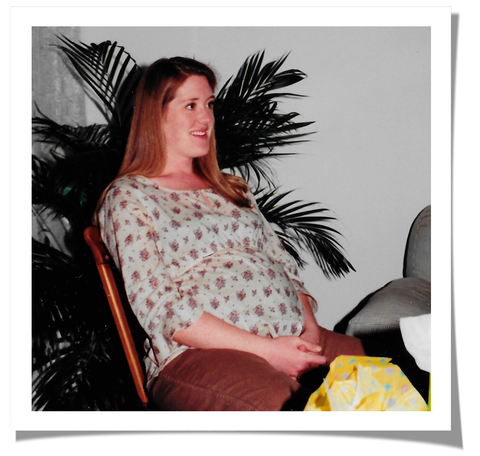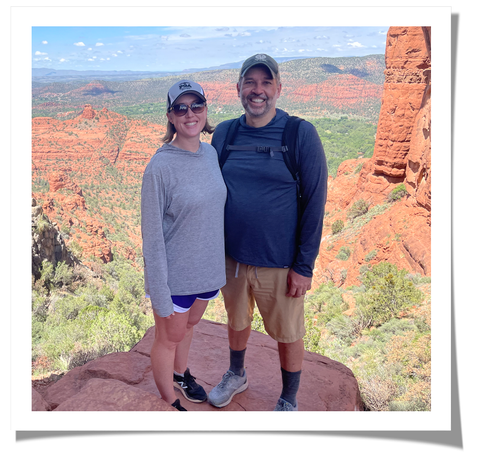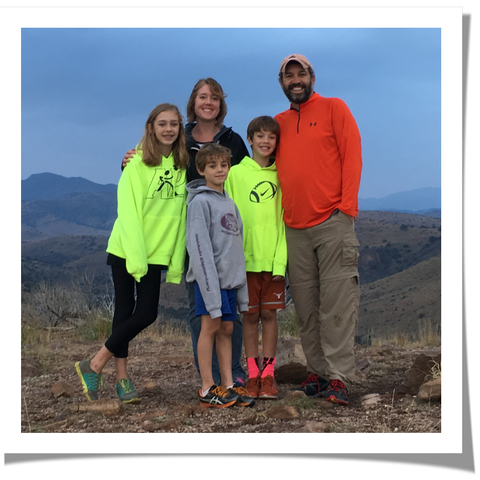Every month for the past five years, I’ve had a yeast infection. Usually, the infections start with a bit of irritation, which turns into itchiness, then a burning feeling and eventually, discharge. Because I’ve been through so many, I can feel the symptoms coming on early, like my own personal radar. I’m very in tune with any twinges, tingles, itchiness or prickles in my vaginal area — and they fill me with dread each time. Often stopped in my tracks, I ruminate over every sensation: “Are these symptoms getting worse, or is it finally going away?”
About five years ago, I was diagnosed with recurrent vulvovaginal candidiasis (RVVC), also known as chronic yeast infections. RVVC is defined as three or more yeast infections a year — but I have many more than that. For most people, common symptoms include vaginal itching, burning, irritation and inflammation. Others experience abnormal discharge and painful sex or urination. Believe it or not, RVVC affects 6 million women in the U.S., and it is often misdiagnosed since the symptoms are similar to other women’s health conditions. RVVC often takes an emotional and mental health toll, impacts relationships and intimacy and generally affects your daily life.
My journey to getting a RVVC diagnosis was incredibly disheartening, to say the least. I’m 45 now and have actually been dealing with frequent yeast infections for 19 years. What causes them is unpredictable, and so is how they’re treated. Sometimes my infections can be treated within a week; other times it takes six weeks for a single bout. I can have a few months off here and there, but most times my yeast infections follow my period each month.
With many conditions, a diagnosis usually allows a doctor to help you understand how to treat or manage a condition. With RVVC, there’s no such comfort. I’m still on the hunt for a treatment that will work long-term or cure me. I take medication for my chronic yeast infections, which I’ll have to do for the rest of my life. But, there’s no certainty that they will completely clear up each time.
My first infection interrupted my pregnancy
I was diagnosed with my first yeast infection 19 years ago. My husband and I had been married for about three years, and we were expecting our first baby. As my baby was growing, of course my body was changing and growing too; everything was feeling different than normal — but that seemed par for the course.
So, near the end of my pregnancy, when I first started feeling a slight itching in my vaginal area, I thought, “Maybe this is just what it’s like to be pregnant?” The symptoms got worse, and the itching and irritation turned into burning and discharge. I soon realized that this was not normal. My doctor confirmed that it was a yeast infection. We treated it and within about a week my symptoms went away and I felt better.
Over the next decade, we had two more children, and I started having more yeast infections — maybe once a year. They were easily treated with a quick visit to my gynecologist, who gave me a prescription for Fluconazole, a medication used to treat fungal infections, including yeast infections, and a week later, I would be back on track. I had assumed, at this point, that a semi-frequent yeast infection was normal for me — and I accepted that.
However, the discharge, itching and irritation started happening more often; about every three to four months. These increasingly chronic yeast infections were starting to feel like a nuisance. My gynecologist got used to my office visits and phone calls. The infections were still treated pretty easily with Fluconazole. I even had refills so I could start the prescription when I noticed another episode coming on.
Then, about five years ago, I started getting yeast infections even more frequently. They were happening monthly, and the regular Fluconazole dose I was taking was no longer working. It was then that my doctor diagnosed me with RVVC.
Sometimes, I would finish a round of treatments and be symptom-free for a month or two, but other times, the itchiness and the irritation would return immediately. My doctor adjusted the medication. Instead of one pill a week, I started taking three pills the first week and one pill a week for six weeks. Luckily, my insurance covers it all now. But, I used to have a health care plan that would only cover one Fluconazole pill a month, so I had to pay out of pocket for the others, which was costly.
What had felt like a nuisance suddenly felt very much out of my control and I was really starting to feel like it was beyond what my doctor could control, too. I worried, “What if we couldn’t find a way to manage this? What else were we going to do?” I was discouraged and exhausted.
Most treatments haven’t worked consistently
After getting diagnosed with RVVC, I started doing some research to see if I could find something that would cure me of the constant yeast infections. I tried over-the-counter medications like Monistat first, and eventually even turned to naturopathic treatments like adding vinegar to my baths and taking herbs and probiotics. But liquids, creams, pills, suppositories — nothing helped.
One thing did work for a little bit, though: On my doctor’s advice, I tried boric acid suppositories, which were supposed to adjust the pH in my vagina to decrease the likelihood that yeast could grow. Every week for about a year, I inserted a boric acid suppository. It worked for almost nine months, but now my body is seemingly rejecting those, too.
Over the years, other prescription medications would also help for a while and then stop working. Fluconazole has been the most successful treatment for me, and that’s what I still take. Though, sometimes, even Fluconazole doesn’t fully clear up the infection.
My chronic yeast infections affect my daily life
While my yeast infections can come out of nowhere, a few things do trigger them, like staying in a wet bathing suit for too long or working out and not immediately changing out of my sweaty clothes. I do my best to avoid these things but it’s frustrating.
Going to the pool with the kids or to the beach with family means I’m sitting on the sidelines. I’ll wade in ankle-deep or sit on the edge of the pool with my feet in, knowing that if I dove in and enjoyed the fun, I would be dealing with a yeast infection the next week. You try to live life where you can, but there are definitely things that I completely avoid now because I know it will trigger another infection. But, even when I’m avoiding all triggers, I still have yeast infections.
The small adjustments in my life are my new normal. It’s part of having this condition. More than 95% of women with RVVC have had to adapt their lifestyles because of the condition, and many struggle with their relationships.
I’m lucky to have a supportive husband. Each time a yeast infection is coming on, he says, “Alright, we’ve got this.” My chronic yeast infections affect our ability to have a physical connection sometimes. And, intimacy has to be paused for weeks at a time when I’m dealing with an infection.
When you take the vow “in sickness and in health” as you get married, that sounds all well and good. But, when you have a wife that’s physically itchy and emotionally irritated on a monthly basis, it can be a struggle. He would never complain, though. But I’ve learned that failed relationships are common with RVVC, because it can affect your ability to be yourself and to be with someone intimately.
I dream of a future where I don’t have to worry about this
Nineteen years later, it feels like there should be more answers instead of endless questions. I’m always anticipating when the next yeast infection will return. Plus, at the moment, there’s still no FDA-approved medication that cures RVVC.
I think it’s important to decrease the stigma of vaginal health and empower women who have RVVC to seek help. I don’t think that women talk about it much because, well, it can be very embarrassing. I also don’t think everyone understands how yeast infections work; there’s a myth that they’re easy to prevent and always easily curable.
My advice to other women dealing with chronic yeast infections like this is to create a very close relationship with your health care provider — someone that you can trust to listen to your symptoms and work with you on finding a plan that works for you. These professionals are not only our best advocates, but they are our link to research and resources to help find a cure in the future. My healthcare providers have been with me through this journey and have listened to my symptoms, adjusted treatments and continue to look for new ways to treat lingering issues.
RVVC is definitely not a cause I dreamed I’d be championing. I never thought I’d be the poster child for chronic yeast infections. And yet I know my story is important and that it’s like many other women whose voices maybe are not being heard.
I look forward to a time when I can go through my daily routine without having to think about yeast infections. Where I can go swimming without worrying that infection will follow, or go on a long hike and really connect with nature — play volleyball and go out to dinner afterward without having to change into clean, dry clothes. I would love to be at the point where I’m not overanalyzing every tiny feeling or twinge down there.
Despite it all, I consider myself lucky. I have a supportive network of family and friends who have been with me during the hard times and of course, celebrate when things are going well. And life can often distract me, which is a great thing. I have a job as a dietitian that feels like a calling, too. And thankfully, there are plenty of positives in my life to forget the dread — my way of coping is just to keep going on.
Did you enjoy this article? Read more exclusive stories for GH+ members.
This content is created and maintained by a third party, and imported onto this page to help users provide their email addresses. You may be able to find more information about this and similar content at piano.io



